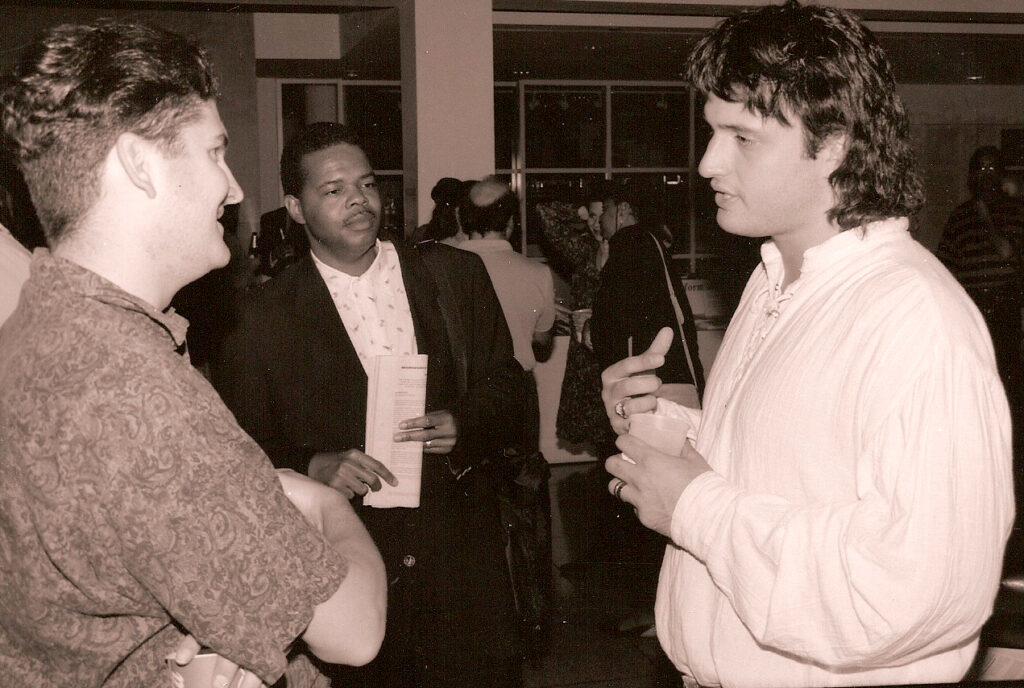
It’s commonly held that you’ve got to hustle for many years to work your way up to the hallowed position of director—and for the most part this is true—but there are a handful of directors who not only achieved success at a young age, but also ratcheted up some of their most career-defining titles before hitting the bit three-oh.
Here are number of superb movies from directors who were under 30 at the time of their release. Some of those listed below even went on to make even more spectacular titles, but the early efforts listed below are well-worth watching in their own right and serve as incredible examples of filmmaking spirit.
Blood Simple (1984)
As we discussed in our Coen Brothers Highlights post earlier in the week, Blood Simple was an amazing start to what would go on to be an amazing career for the duo…though technically, it was only Ethan that deserves a place here as he was 27 at the time. Joel was 30.
El Mariachi (1992)
The first of Robert Rodriguez’s ‘Mexico Trilogy,’ El Mariachi is one of the only movies we can think of which was produced for so little money yet still ended up in the National Film Registry and Library of Congress (Rodriguez raised the $7,000 budget largely by subjecting himself to paid clinical testing).
As a directorial debut, success stories don’t get much better than this (as was covered in the great book about the production, Rebel Without a Crew.)
Citizen Kane (1941)
It’s mind-boggling to think that what is frequently and consistently deemed to be one of the finest movies ever made was created by a director who was not only under 30—Orson Welles was just 26 at the time of Citizen Kane’s release—but also didn’t want to work in film in the first place.
Welles’ heart was dedicated to theatre for most of his early life, and it was only a very lucrative contract that swayed him over to the big screen to create Citizen Kane… and the rest, as they say, is history.
Clerks (1994)
The black and white oddball comedy that put Kevin Smith on the map, who was only 24 at the time and maxing out multiple credit cards in order to make his feature debut. It paid off, and laid the path to further titles in the View Askewniverse canon (including the similarly acclaimed Chasing Amy.)
Memento (2000)
Christopher Nolan got started really young, having earned his first directing (and writing, and producing) credits from the age of 19, honing his craft with a few shorts and low budget film noir feature (Following, 1998), it was his sophomore feature film—the deviously clever, nonlinear Memento—that really set him on the path to the big time. He was 29 at the time of filming.
The Tramp (1915)
While Charlie Chaplin would go on to craft more than a few masterpieces during his reign as the king of cinema’s silent era, it was his sixth release that would come to be considered as his first tour de force.
The Tramp’s titular character would also prove to be Chaplin’s most enduring, and though created by accident while trying on costumes for a previous short, the character evolved beyond simple slapstick for this essential feature outing.
Magnolia (1999)
The first entry on this list so far featuring a director who was already making waves at the time of release, Paul Thomas Anderson’s prior movie Boogie Nights was so successful he was told by studio executives that he could do whatever he wanted for his next film. Two years later and at the age of just 29, he made Magnolia.
American Graffiti (1973)
George Lucas’ work as a director needs no introduction (and nor can it be summed up in a single paragraph), but before his time creating adventures in a galaxy far, far away came two lesser-known titles: THX 1138 and American Graffiti. The former was not successful; the latter, however, became one of the most profitable features in cinema history (with a $200 million box office gross against its $777k budget) and garnered near unanimous praise. Lucas was a few months shy of his 30th birthday at the time of its release.
[su_note]Learn more about the Film School at the New York Film Academy by clicking here.[/su_note]